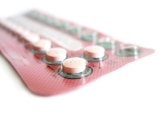 Minors will not after all be able to buy the new Morning-After-Pill (MAP) over the counter because of new guidelines produced by the Pharmaceutical Society of Ireland (PSI).
Minors will not after all be able to buy the new Morning-After-Pill (MAP) over the counter because of new guidelines produced by the Pharmaceutical Society of Ireland (PSI).
A new form of ‘emergency birth control’ called Norlevo was authorised earlier this week by the Irish Medicines Board (IMB).
The drug does not have any lower age limit for use.
However, the PSI has now issued interim guidelines on sale of the product by pharmacists.
Section 1 d) of the guidelines acknowledges that the IMB’s authorisation does not provide for an age limit in using the product.
It points out: “Pharmacists should be aware that patients aged 16 years and over are entitled by law to give their own consent to medical treatment.
However, it adds: “Where a patient is under the age of 16 years it is usual that parental consent is sought. Pharmacists should also be aware that the age of sexual consent in Ireland is 17 years. Where appropriate, pharmacists need to assure themselves of the age of the patient.
“Having regard to the age and circumstances of the individual patient, and any child protection issues arising, pharmacists should consider whether referral to a medical practitioner, other healthcare professional, or other agency or authority, is appropriate.”
Reports in the Irish Times had indicated that NorLevo would be available “over the counter by females of any age”.
Meanwhile, speaking on behalf of The Iona Institute, Professor David Paton of Nottingham University has said that there is no evidence that making the MAP more easily available reduces the rate of unplanned pregnancy.
Prof Paton was responding to suggestions by Dr Catriona Henchion, Medical Director of The Irish Family Planning Association, that the IMB’s move would reduce unplanned pregnancies.
Professor Paton said: “The claim that providing access to Emergency Birth Control without prescription will lead to fewer unwanted pregnancies is completely without foundation.
“Every single piece of peer-reviewed research on this subject to date has found no evidence that easier access to EBC leads to lower rates of unwanted pregnancies, abortions or teenage pregnancies.
“This research is extensive, publicly available and the conclusions are accepted by those in favour and against the principle of EBC. Given this, it is hard to understand why policy makers would make such ill-informed claims.”
Professor Paton continued: “Even more worryingly, the most recent research suggests that easier access to EBC may lead to higher rates of sexually transmitted infections.”
This claim is based on a new study by Professor Paton and colleague Sourafel Girma published in the Journal of Health Economics called ‘The impact of emergency birth control on teen pregnancy and STIs’.